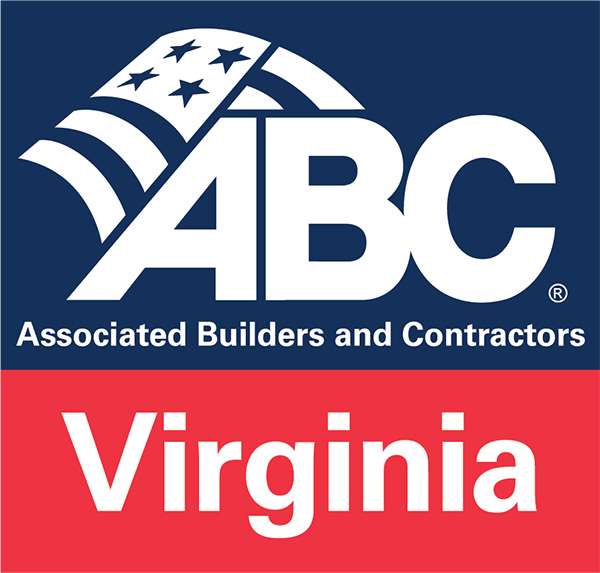Anyone involved in construction for more than a few years knows our industry faces mental health and suicide issues to an exponential degree.

Sherrie Dickerson, ABC-VA Education Coordinator & Mental Health Advocate
But how do companies address the problem? How do we flip the script and create an environment where it’s okay to talk about your struggles? Enter: ABC-VA’s Education Coordinator, Sherrie Dickerson. Sherrie is a mental health advocate for her apprentices, instructors, team members, family, friends, and anyone who needs help. With continuous training in mental health, Sherrie is a brilliant resource for our members who want to create a safe, inclusive environment for their employees. We sat down with Sherrie for a wonderful conversation we know will inspire you to take the first step in implementing a mental health-first mentality.
What is your why behind your passion for mental health support in the construction industry?
My passion for mental health support in the construction industry stems from a deeply personal experience. I have a family member who works in the construction industry and has attempted suicide twice. While this is my biggest motivation in shedding light on the urgent need for better mental health resources, I also feel a call to help people and really be a rock for anyone who’s experiencing suicidal ideations. There are so many resources available for those who are struggling – we just need to educate companies and their leaders on how to recognize and address the problem head-on.
Tell me about the training programs you’re certified to teach.
I’m certified to teach several training programs aimed at addressing mental health issues in the construction industry. One such program is VitalCog: Suicide Prevention in the Construction Industry, which educates individuals on recognizing signs, symptoms, and appropriate responses. It also provides guidance on postvention strategies for managers and supervisors. Additionally, I’m trained to provide Mental Health First Aid training, emphasizing de-escalation techniques, and highlighting what not to say in sensitive situations. Currently, I’m working towards certification in teaching the use of NARCAN, an overdose-reversal medication, to further support mental health initiatives.
Please note: VitalCog: Suicide Prevention in the Construction Industry is a FREE training offered to our members. I will come to your office and provide a safe, open environment where your employees feel comfortable. Email me to schedule this training today!
What are 4 things companies can do right now to create a de-stigmatized environment where employees can say “hey, I’m not okay”?
1. Institute mandatory mental health breaks/check-ins. Require your employees to take at least two 10-minute mental health breaks during the day (if not more!), plus morning check-ins on the jobsite before work starts (supervisors should make everyone feel comfortable to either speak up or come to them one-on-one)
2. Book our VitalCog: Suicide Prevention in the Construction Industry – FREE for ABC-VA members
3. Ensure mental health services are included in your health benefit package at a reasonable cost
4. Find someone in leadership passionate and willing to speak up about mental health – you most likely already have someone on your team (you can also create a special email address where employees can reach out for mental health support—this provides a different way to communicate for those who are uncomfortable reaching out face-to-face)
How do you think leadership impacts the mental health conversation at a company?
Without leadership buy-in, employees won’t feel like they’re in a safe space, period. Leaders who lead by example and advocate for mental health can greatly influence the overall atmosphere. Adopting an open and available approach to mental health discussions, along with a top-down mentality, can foster a supportive environment where employees feel comfortable addressing mental health concerns.

One of Sherrie’s antique window projects 😍
Sherrie, what are some things you do to be proactive in keeping mentally healthy?
1. I focus on things that are incredibly meaningful to me, like helping people. It gives me purpose and keeps my brain happy.
2. Creating antique windows is a passionate hobby of mine. It keeps my mental health in the green and allows for me to explore my feelings and creativity. It’s so soothing to work with my hands and create beautiful pieces of art that will make me smile, as well as others.
3. Mental health breaks! Life is tough, and we were not built to go-go-go and forget about ourselves. Taking intentional moments throughout the day to refocus, possibly meditate and do some breathing exercises, can make a huge difference.
Do you have any final thoughts you’d like to share?
The construction industry has the second-highest suicide rate in the United States with men in construction committing suicide twice as much as the national average. We must all stop pretending like this isn’t a depressing threat. Whether you’re the boss, colleague, or the person struggling—be open to accepting help. A circle of support can be the difference between seeing your co-workers, staff, family, or friends the next day or never again.
If you or someone you know is struggling, please dial *988. While it will not make all your problems go away, it’s a fantastic resource to create a barrier between thought and action.
